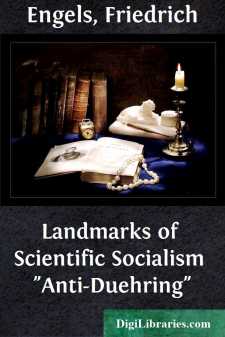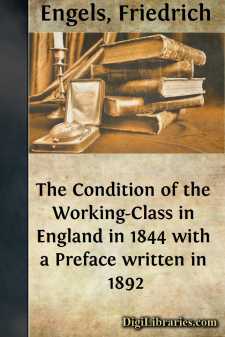Categories
- Antiques & Collectibles 13
- Architecture 36
- Art 48
- Bibles 22
- Biography & Autobiography 813
- Body, Mind & Spirit 142
- Business & Economics 28
- Children's Books 17
- Children's Fiction 14
- Computers 4
- Cooking 94
- Crafts & Hobbies 4
- Drama 346
- Education 46
- Family & Relationships 57
- Fiction 11829
- Games 19
- Gardening 17
- Health & Fitness 34
- History 1377
- House & Home 1
- Humor 147
- Juvenile Fiction 1873
- Juvenile Nonfiction 202
- Language Arts & Disciplines 88
- Law 16
- Literary Collections 686
- Literary Criticism 179
- Mathematics 13
- Medical 41
- Music 40
- Nature 179
- Non-Classifiable 1768
- Performing Arts 7
- Periodicals 1453
- Philosophy 64
- Photography 2
- Poetry 896
- Political Science 203
- Psychology 42
- Reference 154
- Religion 513
- Science 126
- Self-Help 84
- Social Science 81
- Sports & Recreation 34
- Study Aids 3
- Technology & Engineering 59
- Transportation 23
- Travel 463
- True Crime 29
Manifesto of the Communist Party
by: Friedrich Engels
Description:
Excerpt
PREFACE
The "Manifesto" was published as the platform of the "Communist League," a workingmen's association, first exclusively German, later on international, and, under the political conditions of the Continent before 1848, unavoidably a secret society. At a Congress of the League, held in London in November, 1847, Marx and Engels were commissioned to prepare for publication a complete theoretical and practical party programme. Drawn up in German, in January, 1848, the manuscript was sent to the printer in London a few weeks before the French revolution of February 24. A French translation was brought out in Paris, shortly before the insurrection of June, 1848. The first English translation, by Miss Helen Macfarlane, appeared in George Julian Harney's "Red Republican," London, 1850. A Danish and a Polish edition had also been published.
The defeat of the Parisian insurrection of June, 1848—the first great battle between Proletariat and Bourgeoisie—drove again into the background, for a time, the social and political aspirations of the European working class. Thenceforth, the struggle for supremacy was again, as it had been before the revolution of February, solely between the different sections of the propertied class; the working class was reduced to a fight for political elbow-room, and to the position of extreme wing of the Middle-class Radicals. Wherever independent proletarian movements continued to show signs of life, they were ruthlessly hunted down. Thus the Prussian police hunted out the Central Board of the Communist League, then located in Cologne. The members were arrested, and, after eighteen months' imprisonment, they were tried in October, 1852. This celebrated "Cologne Communist trial" lasted from October 4 till November 12; seven of the prisoners were sentenced to terms of imprisonment in a fortress, varying from three to six years. Immediately after the sentence the League was formally dissolved by the remaining members. As to the "Manifesto," it seemed thenceforth to be doomed to oblivion.
When the European working class had recovered sufficient strength for another attack on the ruling classes, the International Workingmen's Association sprang up. But this association, formed with the express aim of welding into one body the whole militant proletariat of Europe and America, could not at once proclaim the principles laid down in the "Manifesto." The International was bound to have a programme broad enough to be acceptable to the English Trades' Unions, to the followers of Proudhon in France, Belgium, Italy and Spain, and to the Lassalleans() in Germany. Marx, who drew up this programme to the satisfaction of all parties, entirely trusted to the intellectual development of the working class, which was sure to result from combined action and mutual discussion. The very events and vicissitudes of the struggle against Capital, the defeats even more than the victories, could not help bringing home to men's minds the insufficiency of their various favorite nostrums, and preparing the way for a more complete insight into the true conditions of working-class emancipation....











